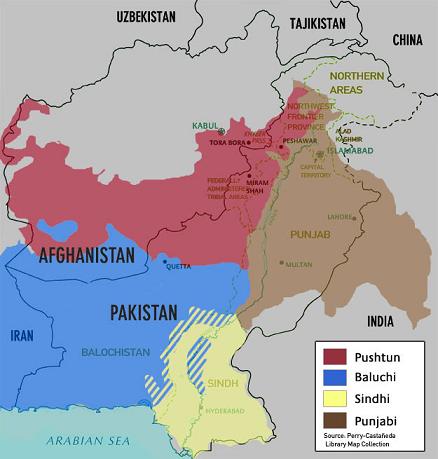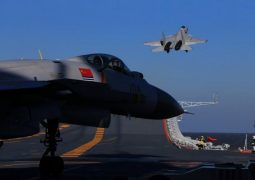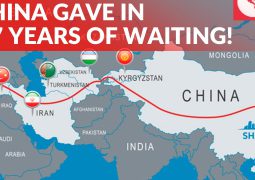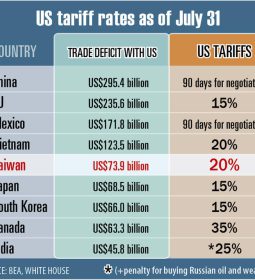Afghanistan vs Pakistan: The principal contradiction

After forty years of conflict in Afghanistan, Pakistani policy towards that country can be summed up in two words: utter failure.
If security is the primary lens through which Pakistani leaders see Afghanistan, then the litmus test for Pakistani policy can either be whether Pakistan has helped bring peace to Afghanistan, or it can be whether Pakistan has been able to inoculate itself from war in Afghanistan, or it can be both. No matter which of these tests we take, Pakistan has failed.
This failure ignores all the non-security aspects of the dynamic between the two countries. There too, failure is the main outcome for Pakistan. Count all the ways. One, the sustained constitutional limbo for the tribal districts under the guise of the ‘Federally Administered Tribal Areas’ created a legal, moral and ethical no man’s land that endured for at least seven decades longer than it should have.
Two, the advantages that Pakistan sought by aligning with the US, when the Soviet Union invaded Afghanistan, were all frittered away by the Kargil clique on the one hand, and the enduring love affair between elements of the state on the one hand, and non state actors (NSAs) on the other.
Three, the ease with which guardians of Pakistaniness allow themselves to be goaded and provoked by Afghan troublemakers on the Pakistaniness of Pakhtuns – despite Pakhtuns being the only ethnic group in the country with a substantial economic, political and social presence across every province and every urban centre in the country.
Of course, Afghanistan represents a somewhat impossible challenge. Failure is the badge that all those that engage with it must wear. Just ask the Soviets, or the Americans. The costs of failure however are different. No country bears a higher and deeper cost for failure in and with Afghanistan than Pakistan.
To stop the bleeding, Pakistan needs to examine the challenge of its relationship with Afghanistan more holistically. In September this year, speaking to a US congressional subcommittee, US diplomat Alice Wells said, “Corruption, government malfeasance, record-high opium production, and criminalization of the economy continue to be the greatest threats to the sustainability of what Afghans, the United States, and our partners have sacrificed to achieve in Afghanistan”.
This statement should be the starting point for a re-imagining of how Pakistan sees Afghanistan. Corruption, malfeasance, narcotics, and crime are four things that Afghanistan has in common with almost every other country on the planet. The difference is that unlike in most countries, in Afghanistan, they threatens the existence of the Afghan state. This means two things, both of which are true at the same time. The first is that the Afghan state is pretty weak, and expecting it to do things that even normal states, like Pakistan, can do, is unrealistic. The second is that the quantum of corruption and crime in Afghanistan is off the charts. How do we know this? Because Alice Wells said so, and she said so without mentioning Pakistan, agencies, or the Haqqani Network.
The fact that Pakistan does not feature in Alice Wells’ top four threats to the established, albeit weak, order in Afghanistan represents an analytical opportunity for Pakistan that has never been tried before. It is time to start trying.
To borrow an analytical frame that Ejaz Haider has recently deployed quite brilliantly in his column at TFT, the “principal contradiction” in Afghanistan, is not ethnicity, nor religious ideology, nor love or hate for India, or Pakistan, or any other country.
The principal contradiction in Afghanistan is poverty. There are very, very limited resources, and both state and society operate in accordance with the centre of gravity for resources. Corruption is a symptom of this principal contradiction. It is the primary threat to the post-9/11 order in Afghanistan because the intensity of the competition for resources drives all aspects of Afghan national life – beginning (and ending) with security. The exchange of money to achieve economic goals is subservient to security, politics, society and order because a lack of resources defines Afghanistan in the same way as a lack of social acceptance of non-Hindus in Indian society defines India, or in the same way as a lack of an equilibrium between civilians and the military defines Pakistan.
If corruption does indeed threaten to undermine all aspects of state and society, as they do in Afghanistan, what would the solution be?
First of all, the solution would not be a quick fix. Principal contradiction level problems can’t be solved by getting rid of the sitting chief of the NDS, or changing who lives in the Arg in Kabul. Afghanistan has changed the head of the NDS to assuage Pakistani concerns, whether sincerely or for show, at least twice in the last decade and a half. And Afghanistan has had leaders that have been pro-Pakistan for significant stretches – yet the problems between the two countries persist.
Second, the solution would have to solve the underlying disease, instead of solving the symptoms. Corruption is a symptom of a wholly under-resourced state and society. If you come down hard on corruption without fixing the underlying problem of a lack of resources, you know what you are? You are Mullah Omar, and the Kandahari Taliban on 1994. All guns, faith, and gory. But no money, and no glory.
Third, the solution would have to be centred in Afghanistan, but involve its neighbouring countries. So much of the corruption in Afghanistan is transnational. The solution must also be transnational. We need to develop stakeholders in an alternative Afghanistan.
There is only one path forward for Afghanistan (and Pakistan) that conforms to those three conditions. It is an Afghanistan that becomes the ‘Heart of Asia’ as a driver of economic integration and connectivity.
There are many conditions that need to be met for this to happen, but there is one condition above all. How Pakistan sees Afghanistan must evolve from a security-plus-plus lens to a financial and economic lens, in which security is, at most, an input to economic benefits and, at least, an outcome of improved economic well-being.
Such a shift is not easy, but the obstacle to the transition is not in Afghanistan. Spoilers in Afghanistan, including those sponsored by India, and those that are remnants of the CIA’s long-standing hedging of its bets in that country are temporary irritants in the relationship. Pakistan lets itself down by letting those spoilers define its Afghanistan policy.
Pakistan’s Afghanistan policy must be governed primarily by the analysis that locates poverty and a lack of resources as the principal drivers of dysfunction and insecurity in the country. Once it is, Pakistani policymakers will begin to privilege long-overdue projects and initiatives such as the Khyber Pass Economic Corridor, the CASA 1000 initiative, the Tapi gas pipeline, and the Uzbekistan-Mazar-e-Sharif-Kabul-Peshawar Railway Corridor. It is these projects and relationships that will help save Pakistan from Afghanistan, and help save Afghanistan from itself.
Forty years of continuous failure merits at least this much. It is the least that the people of Afghanistan and Pakistan deserve.
The writer is an analyst and commentator.
- Previous Unhealable Durand line: Islamabad-Kabul diplomatic tensions soar
- Next What to expect now? India braces itself for verdict on Ayodhya issue
















